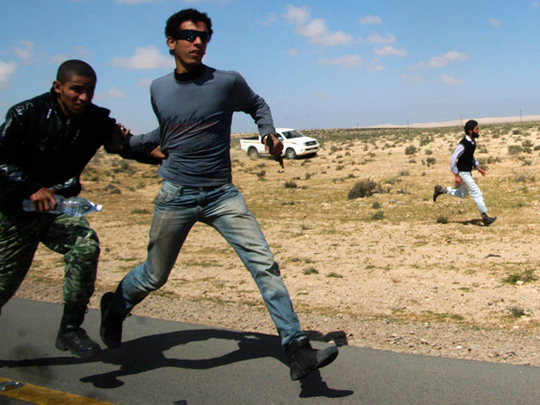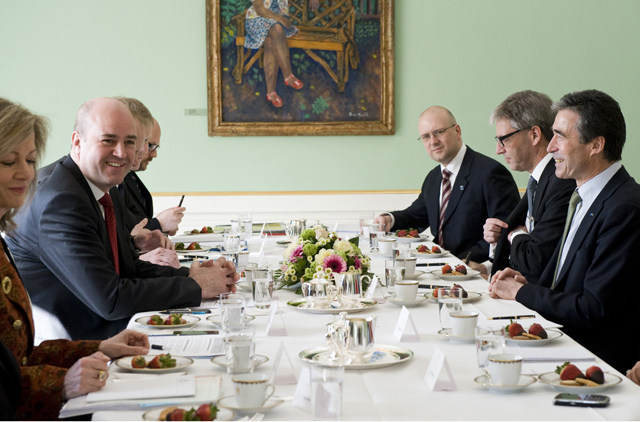
Brussels: Nato assumed command of all air operations over Libya early Thursday, taking over from the US, which had been eager to be rid of that responsibility.
Secretary-General Anders Fogh Rasmussen said the transition was completed at 0600GMT Thursday, giving Nato sole responsibility for all aerial and naval operations in the region.
Nato now commands the international force that has been bombarding forces loyal to Libyan leader Muammar Gaddafi.
A rebellion against Gaddafi's 42-year rule erupted last month, and international forces including the US, France and Britain stepped in March 19, just as it appeared Gaddafi was on the verge of crushing the revolt.
Gaddafi's forces were heavily bombarded, effectively turning the US-led air assaults into an unacknowledged aerial arm of the ragtag rebel force fighting the government's army.
The Nato operation - codenamed Unified Protector - includes enforcement of a UN Security Council resolution mandating an arms embargo on Libya, enforcement of a no-fly zone and the protection of civilians from Gaddafi's troops.
"In line with the mandate ... Nato's focus is on protecting civilians and civilian-populated areas against the threat of attack," Fogh Rasmussen said in a statement.
The takeover comes at a sensitive moment in the war between the rebels and loyalist forces.
On Wednesday, Gaddafi's ground troops recaptured a strategic oil town and moved within striking distance of another major eastern city, nearly reversing the gains rebels made since the international airstrikes began.
The battlefield setbacks will likely increase calls for the international community to supply weapons to the lightly armed rebels, something Nato officials have said would run counter to the UN arms embargo.
The operation will be commanded by Canadian Lt. Gen. Charles Bouchard from Nato's operational centre in Naples, Italy.
There was no word on how many airplanes and military staff would be involved, but officials say dozens of fighters, fighter-bombers, air-refuelling tankers, AWACS surveillance planes, maritime patrol aircraft and search-and-rescue helicopters will likely be required for the operation.
They will be based at a string of Nato bases along the Mediterranean, including Italy, France, Greece and Turkey.
"The transfer of authority on air assets is now complete," Nato spokeswoman Oana Lungescu said. "Everything that has been offered to us has been handed over.
"Nato is the only one issuing operational orders for the international effort," she added.
Nato's governing body, the North Atlantic Council, has approved the alliance's operations for up to three months. That period could be extended if necessary, officials said.













